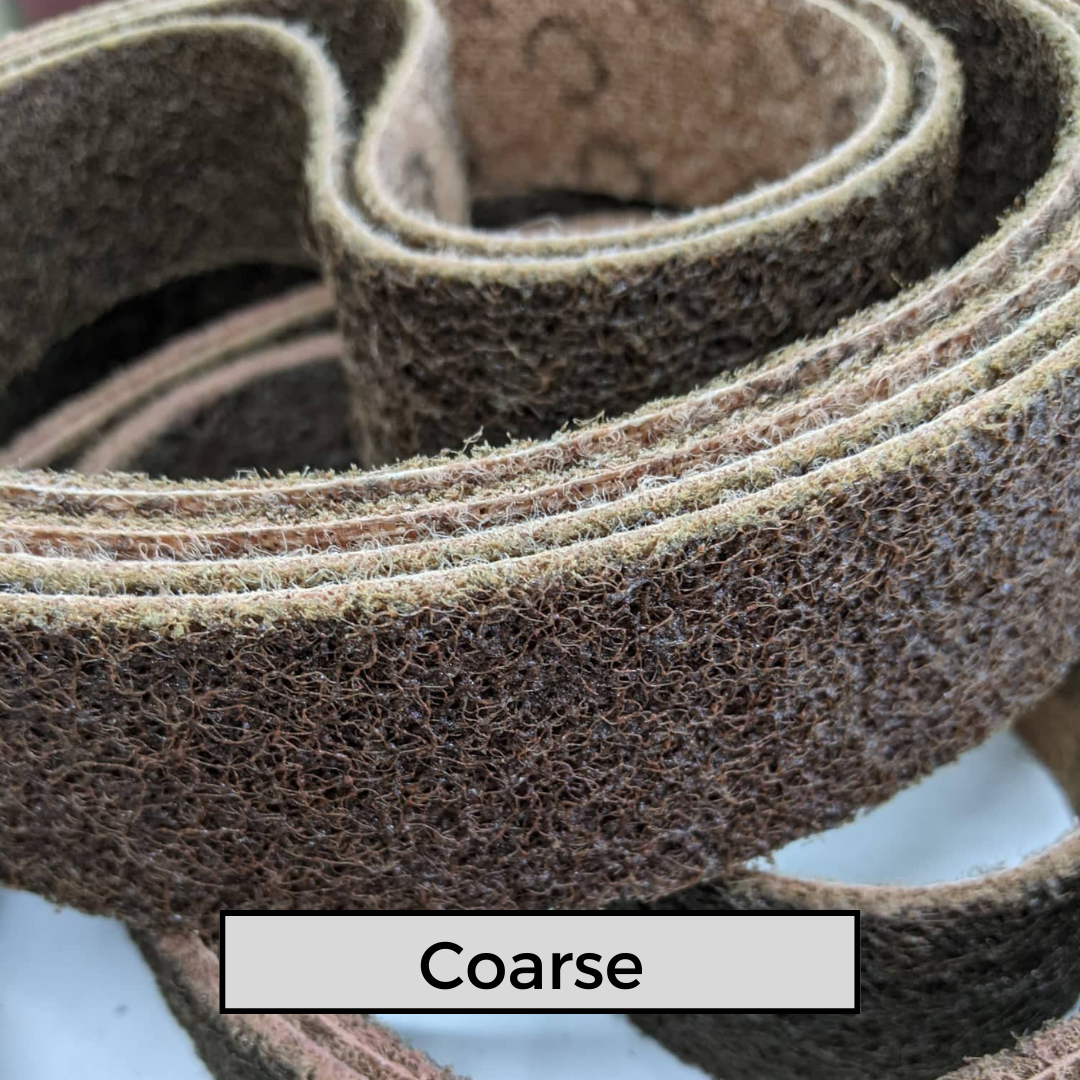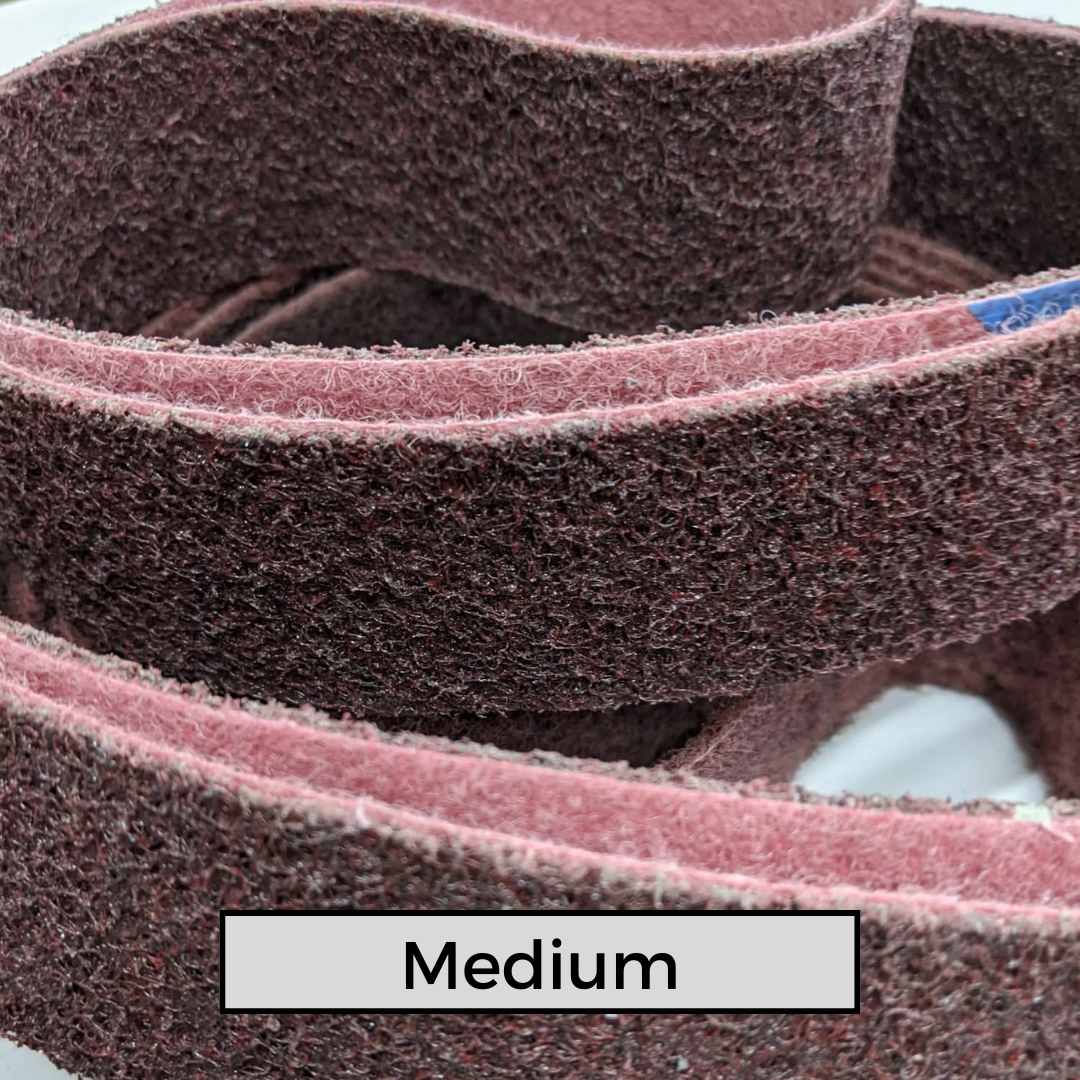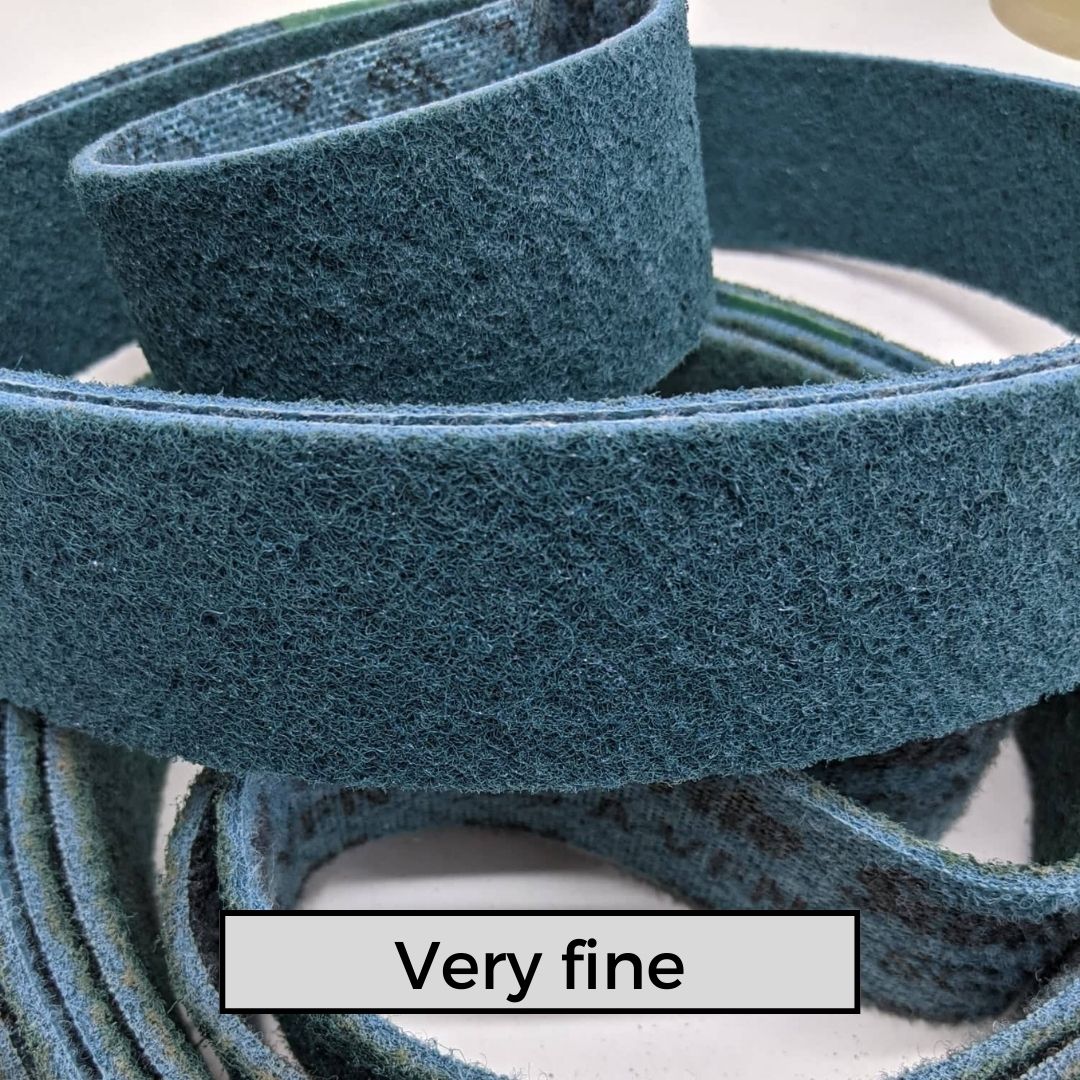
What solutions for the satin of my blade?
Many of you want to get a satin appearance on knife blades without really knowing how to do it.
Sprocket spap has the solution: Its range of nonwoven nylon products.
Unlike applied abrasives (abrasives on canvas supports, paper or polyester), tapes, wheels and nylon buffer have a three-dimensional structure impregnated with abrasive grains maintained by a glue.
The 3-dimensional uniform distribution of abrasive grains and nylon fiber give the band, wheel or abrasive nylon buffer, flexibility and flexibility for a perfectly homogeneous satin finish treated parts.
The very structure of nylon abrasives allows high ventilation that avoids the heating of the room and a better evacuation of the residues.
The wide field of applications of nylons abrasives can go from large stripping to the finest finish, sometimes without even the need to change abrasive and granulometry.
The particle size is thus limited to 5 sizes which allow, according to the type of abrasive in impregnation (aluminum oxide = a / o or carbide of silicon = s / c), to treat the parts with the certainty of reaching the expected result in the Strict Respect of the mode of use, of course!
Small table summary of nylon cloth size equivalents and applied abrasives FEPA standard below (click the desired finish to see the result and the equivalence of the grains):
Coarse Medium Fine Very Fine Ultra-fine Coarse
Equivalence of grains: P80
- Very aggressive
- Suitable for the removal of material
- Ideal for rust or calamine
Medium
Equivalence of grains: P100
- less aggressive
- marked satin
Fine
Equivalence of grains: P180 / 240
- Average satin
- Satin less marked
Very Fine
Equivalence of grains: P280 / 320
- Fine and regular satin
- The most popular finish in cutlery
Ultra-fine
Equivalence of grains: P400 / 600
- very soft finish
- very fine result
We offer several nylon products: Wheels, wheel on rods and bands.
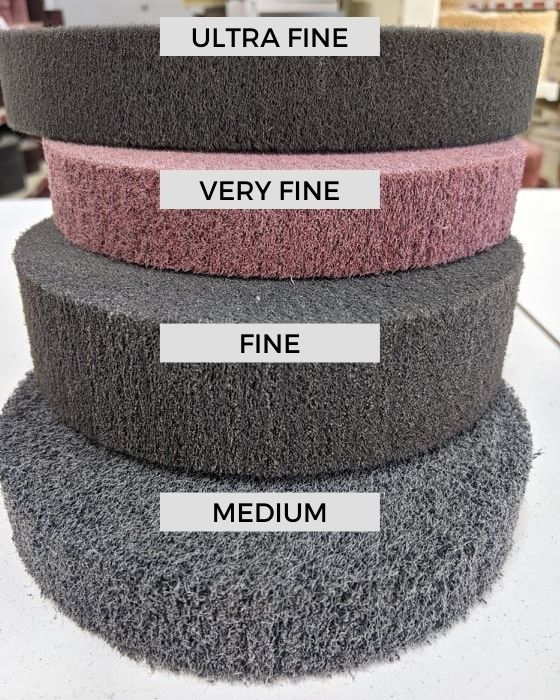
Our nylon wheels
Our nylon wheels are composed of slats, which give it some flexibility to access difficult areas (like the miter).
There are several qualities:
- medium
- fine
- Veryfine
- Ultrafine
You will have the choice of different dimensions of wheels. The wheels rise on a touret. Be careful to choose your wheels with dimensions (diameter, thickness and bore) perfectly adapted to your key.
Note that a thin and soft grnulometry wheel will wear faster because its structure is less dense. Take care to use the recommended particle size corresponding to the expected result.
It is strongly discouraged to skip steps in polishing processes: nor the time saving, nor the expected result would be at the rendezvous. It is much more productive to respect the chronology, if it is recommended, a "coarse" nylon abrasive to an abrasive "Very Fine"
Wheels on stem
You are not equipped with a touret?
You can use our 6mm rod rod nylon wheels to be rising on a drill.
Very flexible, they adapt perfectly to all the most difficult forms of access.
Available in different dimensions but also finish:
Coarse
- medium
- Veryfine.
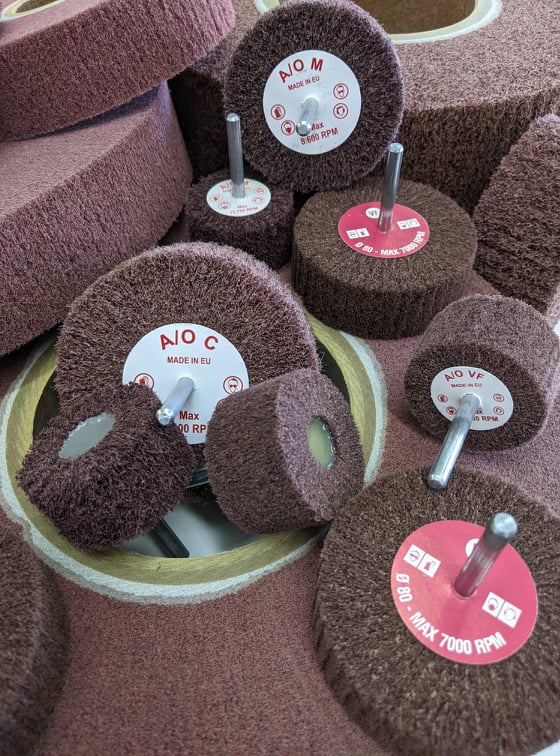
The nylon strips type "Scotch Brite"
Finally, there is still a last product of our family "nylon", and not least since it is our tabic bands Scotch-Brite©, available in different dimensions if you are equipped with a tape sander. Their composition gives them a strong cutting power and a great longevity. In one operation alone, they will allow you to eliminate imperfections and get a more or less satin finish according to the desired result.
There are 3 finishes: Coarse, medium and veryfine.
Note that a nylon band will necessarily be less flexible than a polishing wheel because its three-dimensional structure is less thick.
Therefore, for a desired satin finish, it is better to use a polishing wheel rather than a band.
